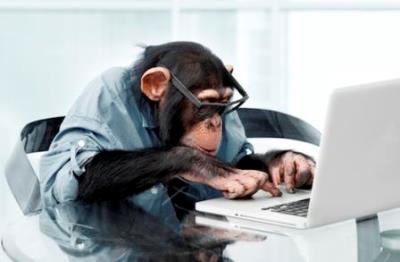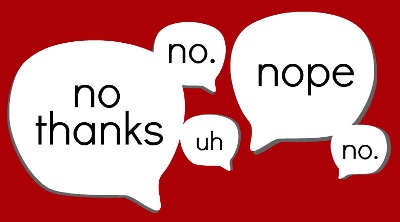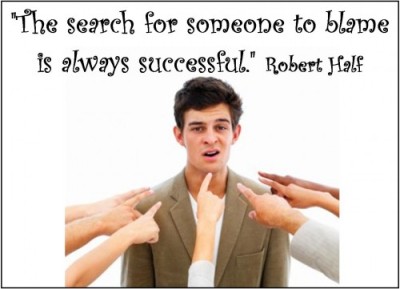Interruptions is the scourge of our modern life. It becomes increasingly difficult to concentrate on creating something without being disturbed.
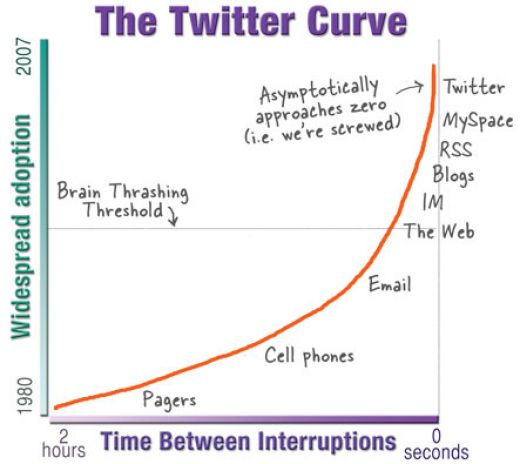
The curve on the right is somewhat ironic, but doesn’t it represent what we feel on a daily basis? Can you remember how life was before emails and mobile phones ? (I have difficulties on my side, although I lived the start of my adult life in that faraway time).
Actually I dropped twitter because its value is based on being constantly connected – tweets disappear after a few hours or even minutes.
It is essential to keep in your life moments without interruptions. There are even some paying applications that shut down internet on your computer! Yes, some are even paying! (visit for example the page for “Freedom” (10$) or “Self-Control” (free). [Curiously these applications seem to be only for Macs; either PC users don’t have internet or only those creative Apple freak seem to need paid applications to shut down internet on their computer!!]
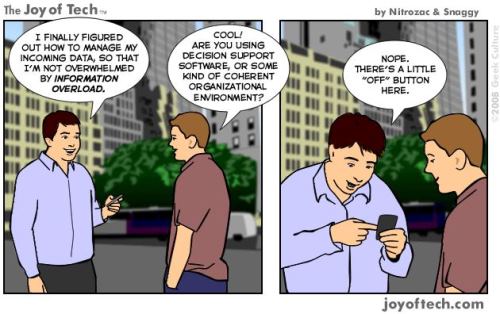 Anyway, there is one simple way to avoid being constantly interrupted. It’s free even! The image on the left is self-explanatory.
Anyway, there is one simple way to avoid being constantly interrupted. It’s free even! The image on the left is self-explanatory.
When was the last time you did turn your gadgets off to enjoy a real, quality time without interruption?


